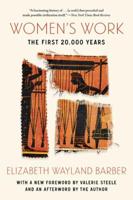Publisher's Synopsis
Chronic Hindu-Muslim rioting in India has created a situation in which communal violence is both so normal and so varied in its manifestations that it would seem to defy effective analysis. Paul R. Brass, one of the world's preeminent experts on South Asia, has tracked more than half a century's riots in the north Indian city of Aligarh. This book is the culmination of a lifetime's thinking about the dynamics of institutionalized intergroup violence in northern India, covering the last three decades of British rule as well as the entire post-Independence history of Aligarh.
Brass exposes the mechanisms by which endemic communal violence is deliberately provoked and sustained. He convincingly implicates the police, criminal elements, members of Aligarh's business community, and many of its leading political actors in the continuous effort to "produce" communal violence. Much like a theatrical production, specific roles are played, with phases for rehearsal, staging, and interpretation. In this way, riots become key historical markers in the struggle for political, economic, and social dominance of one community over another.
In the course of demonstrating how riots have been produced in Aligarh, Brass offers a compelling argument for abandoning or refining a number of widely held views about the supposed causes of communal violence, not just in India but throughout the rest of the world. An important addition to the literature on Indian and South Asian politics, this book is also an invaluable contribution to our understanding of the interplay of nationalism, ethnicity, religion, and collective violence, wherever it occurs.










